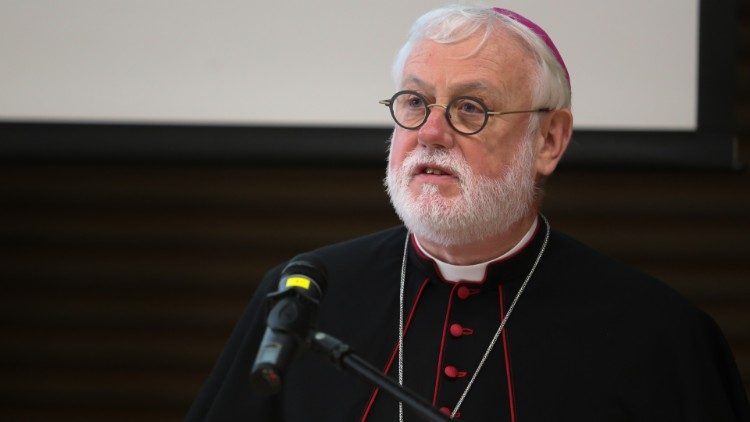The Vatican urged global access to energy in the following address given by Archbishop Paul Richard Gallagher, secretary for Relations with States, at the United Nations High-Level Dialogue on Energy. The event was held at the United Nations in New York on Friday, September 24, 2021.
Intervention of Archbishop Paul Richard Gallagher:
Mr. President,
The Holy See thanks you for convening this High-Level Dialogue on Energy at a time when the implementation of Sustainable Development Goal 7 is becoming ever more urgent.
Access: technology, infrastructure, affordability
Currently 759 million people live without electricity.[1] As called for in the 2030 Agenda for Sustainable Development, to eliminate poverty and hunger we must ensure that every family and household has sufficient access to affordable and reliable energy. This means promoting energy systems and micro-grids for “end-consumers” on a local level and providing communities with durable energy infrastructures. Instilling respect for local cultures and ensuring that they are able to manage and maintain their own energy resources, in line with the principle of subsidiarity, are vital and will prevent exploitative dependencies on large energy networks and bureaucracies.[2]
Energy access also depends on affordability and pricing. The poor, including those on the peripheries of society in developed countries, often cannot afford the energy needed for daily life. Therefore, reasonable energy pricing, ethical business practices and subsidies for the poorest are essential.[3]
Negative impact of production/consumption on the planet and the poor
As we collectively strive to ensure energy access for all, we must take into account the resulting impact on the environment. The extraction, transformation, transport, and consumption of fossil fuels and unclean energy harm air, water, soil, ecosystems, and climate.
Just as energy access is not evenly distributed, neither are the negative effects of energy production. Their disproportionate impact on the poor and those in vulnerable situations, in some circumstances leads to social unrest, negative health impacts, conflict, and numerous human rights violations. Additionally, climate change disrupts the agricultural sector, exacerbates water insecurity and scarcity, and increases exposure to extreme weather events, destroying livelihoods and forcing many to leave their homes and migrate.
Energy transition
A just energy transition should pursue smarter, more efficient, and more peaceful energy production, management, and consumption, especially in those areas where energy is most likely to be wasted. The production of disposable goods, low-quality products, single-use items, and other commercial strategies that purposefully waste energy are all symptoms of a “throw away culture”. In light of this reality, the largest energy consumers have an obligation to review their impact on “those who are not yet able to live in a way worthy of their human dignity.”[4]
The transition to accessible and clean energy is a duty that we owe to millions of our brothers and sisters around the world, especially the poor, including generations yet to come. “Civilization requires energy,” Pope Francis has noted, “but energy use must not destroy civilization!”[5]
Thank you, Mr. President.
[1] UNDESA, Theme Report on Energy Access: Towards the Achievement of SDG7 and Net-Zero Emissions, 2021.
[2] See generally: Interdicasterial Working Group of the Holy See on Integral Ecology, Journeying Towards Care for our Common Home: Five Years After Laudato Si’, (Vatican City, 2020).
[3] See generally: Interdicasterial Working Group of the Holy See on Integral Ecology, Journeying Towards Care for our Common Home: Five Years After Laudato Si’, (Vatican City, 2020).
[4] Pope Francis, Laudato Si’, 193.
[5] Pope Francis, Address of His Holiness Pope Francis to participants at the meeting for executives of the main companies in the oil and natural gas sectors, and other energy related businesses, 9 June 2018.










